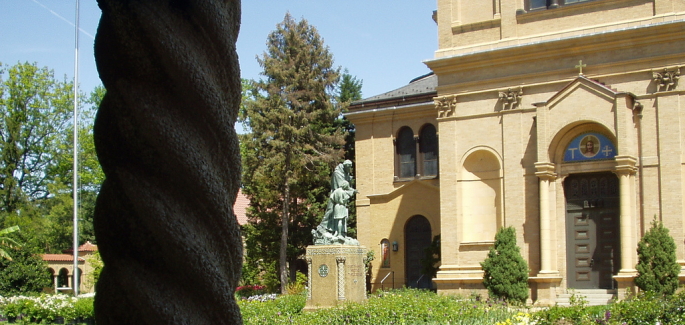
Apr 2, 2016 | Focolare Worldwide
A conference for mathematicians “A couple of my colleagues also attended a conference with their small son. After supper they took turns putting him to sleep and were never able to spend an evening together. I sensed that things weren’t going well between them and wondered what I could do to help. I suggested that one evening I could stay up with the boy, since he knew me quite well. The following day my colleague thanked me: Ever since the little one was born, he told me, they’d never had a moment just for them, and that evening was very important.” M.Z. – Poland My neighbour is another me “I study art at university. Shocked by the suffering of so many Syrian families, I thought of organising an art exhibit with some friends. We could use the money we earned from selling our artwork to help those families. We called the exhibit: ‘My neighbour is another me. Break down the walls of indifference’.” One of the main pieces was a wall made of tiles. Each visitor could take one tile home as a reminder that we’re all connected and invited in our daily lives to do something for people who are suffering. There were a lot of problems involved in organising the exhibit. At one point I was really tired, but thinking about the suffering of the Syrians I found new energy to carry on. The art sale brought in 4000 dollars that will be donated in full to several Syrian families.” J.T. – USA The goodnight kiss “Once again, that night Papa had dumped all the day’s stress on Mamma. Without a reply, she went to iron in the kitchen as he read in the living room. A wall had been built between them. Feeling the atmosphere growing heavier and heavier, my brothers and I went to our rooms. But I couldn’t fall asleep. A sentence kept coming to my mind: “Where there is no love, put love and you’ll draw out love.” Overcoming my human pride, I got up and went into the kitchen. “Good night, Papa,” and I gave him a kiss. Then, “Good night, Mamma” and gave her a kiss. They looked at each other and the wall between them collapsed. I went back to bed happy.” G.M. – Switzerland  One small act of love “I’m a Franciscan. After giving the last hoe I had to a poor person I said to Jesus: “Okay, now you take care of it!” I heard on the radio that a whole party of hoes were arriving. I asked an NGO to make me one of the beneficiaries: I received 200 hoes along with machetes and sacks of seed that I distributed. Many people from the place ask me for help: Members of a Protestant sect from Kimbangisti and even a witch doctor. He invited me to his home and, offering me 5 litres of palm wine, he thanked me for all that I do for his people. All because of one small act of love. . .” G.B. – Angola
One small act of love “I’m a Franciscan. After giving the last hoe I had to a poor person I said to Jesus: “Okay, now you take care of it!” I heard on the radio that a whole party of hoes were arriving. I asked an NGO to make me one of the beneficiaries: I received 200 hoes along with machetes and sacks of seed that I distributed. Many people from the place ask me for help: Members of a Protestant sect from Kimbangisti and even a witch doctor. He invited me to his home and, offering me 5 litres of palm wine, he thanked me for all that I do for his people. All because of one small act of love. . .” G.B. – Angola
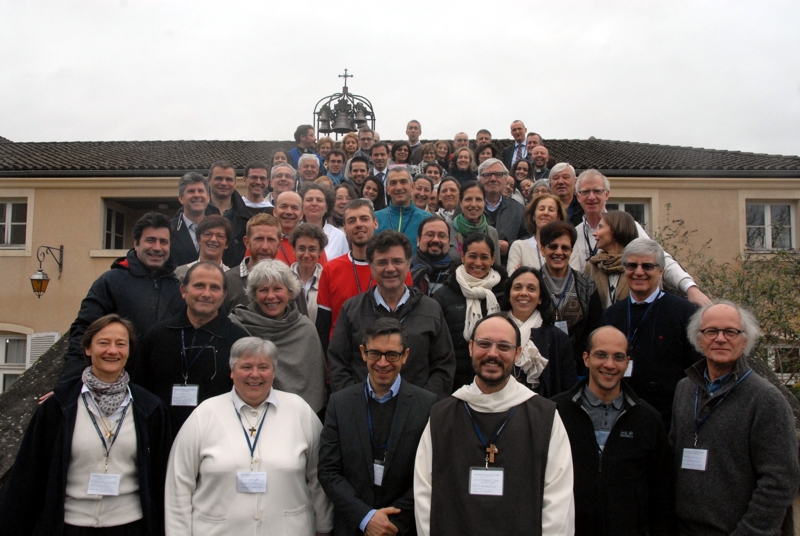
Apr 1, 2016 | Focolare Worldwide
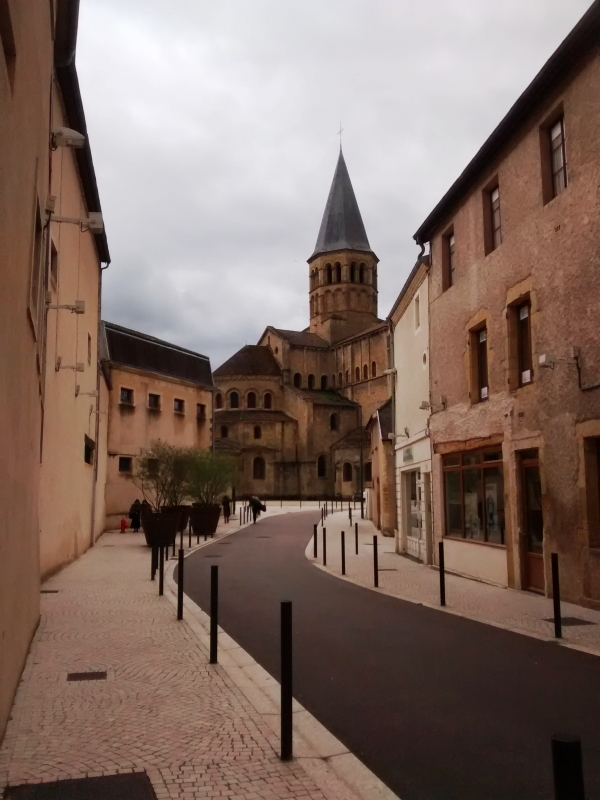 Paray-le-Monial, a city in the Burgundy region is not far from other places with a rich spiritual heritage, like Cluny and Taizé, and embodies the artistic heritage of the places of worship it boasts of (this is where Cluny and Cistercian architecture originated), set along the “roads of Romanic culture,” leading to Santiago di Compostela. Furthermore, Jesus appeared here to Saint Margherita Maria Alacoque and this gave rise to the spirituality of the Sacred Heart. The participation of 14 Movements and new Communities, with over 70 members of various ages and experiences, was driven by a fraternal friendship and the desire to broaden their knowledge. Thus a meeting entitled, “Communion and mercy – Experiences and challenges,” was set for 3 – 6 March. Also the bishop of Le Mans, Bishop Yves Le Saux was present. The choice of the place was triggered by the invitation of the Community of Emmanuele since it was here where an important historical phase of the community began in 1975, and which then diffused worldwide. Some of the participants had already attended last year’s event held near Florence, in Loppiano, while some were there for the first time. “Unity is lived like a polyhedron “– Pope Francis had said to the Catholic Fraternity in 2014. It invites us to marvel at what we are. In his welcoming speech, Laurent Landete, head of the Emmanuele Comunity, stressed that “Through a spirit of wonder, we contemplate the profiles of your communities.” Mercy is the name of God, the Pope affirmed when he opened the Jubilee Year, and this was the framework which each of the 14 communities placed as the setting of their projects and testimonials. For the Arche group, the aim is to heal the wounds of disability. The Community has to become a place of forgiveness: and though fragile and vulnerable, we can experience the Father’s mercy. The Pope John XXIII Association targeted sharing with the poor and learning forgiveness. For the Speranza, New Horizons families and the Cenacle Community, it means going into the depths of addiction and existential fragility to bring the resurrection, mercy and reconciliation with oneself and the world. All this may appear to be mere social actions, but upon listening to their experiences, a profound spirituality ensued, and they became striking examples of the pedagogy of the Gospel.
Paray-le-Monial, a city in the Burgundy region is not far from other places with a rich spiritual heritage, like Cluny and Taizé, and embodies the artistic heritage of the places of worship it boasts of (this is where Cluny and Cistercian architecture originated), set along the “roads of Romanic culture,” leading to Santiago di Compostela. Furthermore, Jesus appeared here to Saint Margherita Maria Alacoque and this gave rise to the spirituality of the Sacred Heart. The participation of 14 Movements and new Communities, with over 70 members of various ages and experiences, was driven by a fraternal friendship and the desire to broaden their knowledge. Thus a meeting entitled, “Communion and mercy – Experiences and challenges,” was set for 3 – 6 March. Also the bishop of Le Mans, Bishop Yves Le Saux was present. The choice of the place was triggered by the invitation of the Community of Emmanuele since it was here where an important historical phase of the community began in 1975, and which then diffused worldwide. Some of the participants had already attended last year’s event held near Florence, in Loppiano, while some were there for the first time. “Unity is lived like a polyhedron “– Pope Francis had said to the Catholic Fraternity in 2014. It invites us to marvel at what we are. In his welcoming speech, Laurent Landete, head of the Emmanuele Comunity, stressed that “Through a spirit of wonder, we contemplate the profiles of your communities.” Mercy is the name of God, the Pope affirmed when he opened the Jubilee Year, and this was the framework which each of the 14 communities placed as the setting of their projects and testimonials. For the Arche group, the aim is to heal the wounds of disability. The Community has to become a place of forgiveness: and though fragile and vulnerable, we can experience the Father’s mercy. The Pope John XXIII Association targeted sharing with the poor and learning forgiveness. For the Speranza, New Horizons families and the Cenacle Community, it means going into the depths of addiction and existential fragility to bring the resurrection, mercy and reconciliation with oneself and the world. All this may appear to be mere social actions, but upon listening to their experiences, a profound spirituality ensued, and they became striking examples of the pedagogy of the Gospel.  For the Canção Nova Community, mercy means using the means of communication to be able to bring the good news to all of humanity. Unity for the Focolare is the renewal of its choice to stand in every moment, side by side with each person we meet, with the inevitable alternation of light and shadows. Love for our brother and the “pact of mercy” are the practices that help reach this goal. The Catholic Shalom Community instead targeted mercy as a mission, in unforeseen situations such as that of the Carnival of Rio. The Community of the Beatitudes chose to share the path in identifying and expressing its ecclesiastic features in its Statutes, and the Regnum Christi Community focused on sharing the Church’s goals and fraternal friendship in Christ as referral points of light. The current events gave a strong imprint on the relationships that ensued during the meeting. The Emmanuele Community shared its interreligious dialogue initiatives, especially with the Muslims. This was an important fact, considering the serious attacks that came about in the country. Also the Sant’Egidio Community stressed the importance of peace, the acquisition of a vision of a world that discovers brotherhood as its innermost being. The Chemin Neuf Community stressed that sharing strengthens communion, and makes us experience the extraordinary mercy of the Father who is unity: the source of their mission. “Diverse charisms in the kaleidoscope of the testimonials, appeared like God’s Love reaching out to humanity today”, declared Lina Ciampi who participated on behalf of the Focolare. There was a strong desire in everyone to meet again, and the determination to keep in touch and pray for one another. A pact of benevolence among us, concluded the meeting.
For the Canção Nova Community, mercy means using the means of communication to be able to bring the good news to all of humanity. Unity for the Focolare is the renewal of its choice to stand in every moment, side by side with each person we meet, with the inevitable alternation of light and shadows. Love for our brother and the “pact of mercy” are the practices that help reach this goal. The Catholic Shalom Community instead targeted mercy as a mission, in unforeseen situations such as that of the Carnival of Rio. The Community of the Beatitudes chose to share the path in identifying and expressing its ecclesiastic features in its Statutes, and the Regnum Christi Community focused on sharing the Church’s goals and fraternal friendship in Christ as referral points of light. The current events gave a strong imprint on the relationships that ensued during the meeting. The Emmanuele Community shared its interreligious dialogue initiatives, especially with the Muslims. This was an important fact, considering the serious attacks that came about in the country. Also the Sant’Egidio Community stressed the importance of peace, the acquisition of a vision of a world that discovers brotherhood as its innermost being. The Chemin Neuf Community stressed that sharing strengthens communion, and makes us experience the extraordinary mercy of the Father who is unity: the source of their mission. “Diverse charisms in the kaleidoscope of the testimonials, appeared like God’s Love reaching out to humanity today”, declared Lina Ciampi who participated on behalf of the Focolare. There was a strong desire in everyone to meet again, and the determination to keep in touch and pray for one another. A pact of benevolence among us, concluded the meeting.
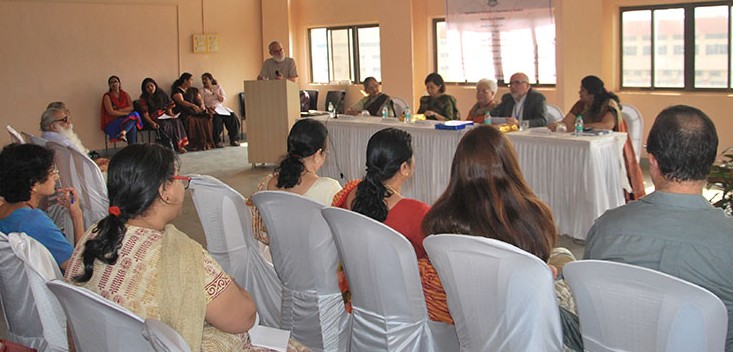
Mar 31, 2016 | Non categorizzato

Photo © CSC Audiovisivi
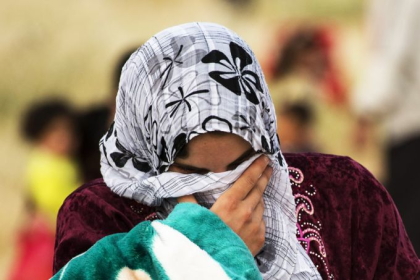
Mar 30, 2016 | Focolare Worldwide

Foto: Flickr CC / NC_20 CNA
![CH Link up]()
Mar 30, 2016 | Non categorizzato
 The news summary will be made available on the Collegamento CH website a few days before the Internet transmission. On the same website one can find all the previous linkups in various languages, as full editions as well as individual news video clips.
The news summary will be made available on the Collegamento CH website a few days before the Internet transmission. On the same website one can find all the previous linkups in various languages, as full editions as well as individual news video clips.
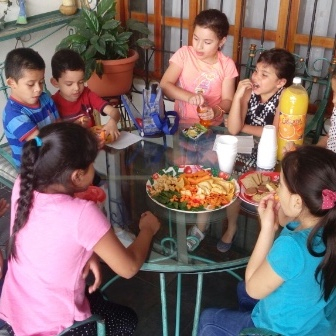
Mar 30, 2016 | Focolare Worldwide, Senza categoria
 Protecting minors is a civic obligation which is also finds it fulfilment in the utmost respect for human rights. It is an obligation, therefore, but one that is loaded with foresight, precisely because of the inestimable value it represents for the new generations. Upon reviewing the various articles of the El Salvador law which entered into force in 2011, the novelty stands out, with respect to the previous law which only highlighted the cases where this is missing, such as situations regarding survival, disability and abandonment. This new norm which refers to the guidelines of international laws provides for the protection of all children from their conception up to the age of 18, ensuring adequate opportunities for integral development and a life that reflects the standards of human dignity. As in many countries, also in El Salvador social phenomena that endanger these principles abound, precisely due to the typical vulnerability to which infants and adolescents are exposed. And as in any other place on the planet, also here the population is called to collaborate actively with the institutions to safeguard every human right, but especially those rights every child in the world is entitled to. In 2014, a Document drawn up by the Focolare “for the promotion of the wellbeing and protection of minors” had aroused in the Movement worldwide, a renewed awareness of this responsibility. Also due to this initiative, the El Salvadorean community of the Focolare is now giving its valid contribution to a widespread knowledge of children’s rights and of how we must act to promote their integral development and the psycho-physical-spiritual wellbeing of minors, while also denouncing certain hidden and subtle practices with which parents and educators involuntarily damage their harmonious growth. This action of the Focolare found support in the local Catholic Church which in turn encourages the associations to adopt all the means possible to help forestall any action that may infringe these rights. The Focolare’s training programme provides for a reading of the law in the light of evangelical love, in the perspective of concurring to form new generations that are increasingly aware and free to make their independent choices for values in life. This programme also includes the recent “ Up2meProject” created by the Focolare and adjusted to the various development phases. It is enthusiastic work carried out by adults, youth, adolescents and children, to open a dialogue on various themes that are ever more actual today.
Protecting minors is a civic obligation which is also finds it fulfilment in the utmost respect for human rights. It is an obligation, therefore, but one that is loaded with foresight, precisely because of the inestimable value it represents for the new generations. Upon reviewing the various articles of the El Salvador law which entered into force in 2011, the novelty stands out, with respect to the previous law which only highlighted the cases where this is missing, such as situations regarding survival, disability and abandonment. This new norm which refers to the guidelines of international laws provides for the protection of all children from their conception up to the age of 18, ensuring adequate opportunities for integral development and a life that reflects the standards of human dignity. As in many countries, also in El Salvador social phenomena that endanger these principles abound, precisely due to the typical vulnerability to which infants and adolescents are exposed. And as in any other place on the planet, also here the population is called to collaborate actively with the institutions to safeguard every human right, but especially those rights every child in the world is entitled to. In 2014, a Document drawn up by the Focolare “for the promotion of the wellbeing and protection of minors” had aroused in the Movement worldwide, a renewed awareness of this responsibility. Also due to this initiative, the El Salvadorean community of the Focolare is now giving its valid contribution to a widespread knowledge of children’s rights and of how we must act to promote their integral development and the psycho-physical-spiritual wellbeing of minors, while also denouncing certain hidden and subtle practices with which parents and educators involuntarily damage their harmonious growth. This action of the Focolare found support in the local Catholic Church which in turn encourages the associations to adopt all the means possible to help forestall any action that may infringe these rights. The Focolare’s training programme provides for a reading of the law in the light of evangelical love, in the perspective of concurring to form new generations that are increasingly aware and free to make their independent choices for values in life. This programme also includes the recent “ Up2meProject” created by the Focolare and adjusted to the various development phases. It is enthusiastic work carried out by adults, youth, adolescents and children, to open a dialogue on various themes that are ever more actual today.
Mar 29, 2016 | Non categorizzato, Word of
Audio Player
Why are these words of Jesus so dear to us and why do they come back time and again in the Words of Life we choose each month? Perhaps it’s because they are the heart of the Gospel. They are what the Lord will ask us when in the end we find ourselves in front of him. On these words will hinge the most important exam of our lives; and we can get ready for it every single day. The Lord will ask whether we have given food and drink to whoever was hungry and thirsty, whether we have welcomed the stranger, whether we have clothed the naked, visited the sick and the prisoner… It is a question of little acts, which yet have the value of eternity. Nothing is small if done for love, if done for him. Jesus indeed did not just come close to the poor and marginalized; he healed the sick and comforted the suffering. But he loved them with a preferential love, to the point of calling them members of his family, of identifying himself with them in a mysterious solidarity. Today too Jesus is still present in whoever suffers injustice and violence, in whoever is looking for work or living in a risky situation, in whoever is forced to leave his or her homeland because of war. How many people are in pain around us for all sorts of other reasons and call out, even without words, for our help! They are Jesus who asks for concrete love, a love capable of inventing new ‘works of mercy’ in keeping with new needs. No one is excluded. If a person who is old or sick is Jesus, how can we not seek what could give the necessary relief? If I teach my language to an immigrant child, I teach Jesus. If I help my mother clean the house, I help Jesus. If I bring hope to a prisoner or consolation to someone who is afflicted or forgiveness to someone who has hurt me, I build a relationship with Jesus. And every time the fruit will be not only giving joy to the other person, but I too will feel a great joy. By giving we receive, we sense an inner fullness, we feel happy because, even though we do not know it, we have met Jesus. The other person, as Chiara Lubich wrote, is the archway we pass under to reach God. This is how she recalls the impact of this Word of Life from the first moments of her experience: The whole of our old way of thinking about our neighbours and loving them collapsed. If Christ was in some way in everyone, we could not discriminate, we could not have preferences. Our human notions that classified others were thrown up into the air: compatriot or foreigner, old or young, good-looking or ugly, nice or nasty, rich or poor, Christ was behind each one, Christ was in each one. And in reality each brother or sister was ‘another Christ’…. Living like this we realized that our neighbour was for us the path to God. Or rather, our brother or sister was like an archway that we had to go under to meet God. We experienced this from the earliest days. What union with God in the evening, when we prayed, or when we recollected ourselves after having loved him all day in our brothers and sisters! Who gave us that consolation, that inner union that was so new, so heavenly, if not Christ who lived the ‘give, and it will be given to you’ (Lk 6:38) of his Gospel? We had loved him all day in our brothers and sisters and here he was now loving us.’1 Fabio Ciardi 1 Chiara Lubich Scritti spirituali, vol. 4, (Rom3, 1995), 204-5.
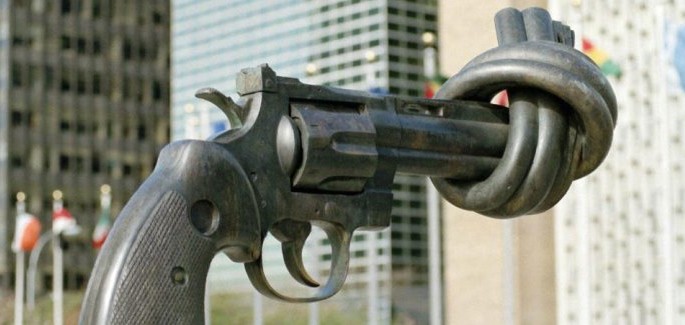
Mar 29, 2016 | Focolare Worldwide, Senza categoria
 “At the age of 19 I left my home in Abruzzi, Italy, to study aerospace engineering in Pisa. It was an exhausting but satisfying journey. In 5 years I finished the specialisation with honours and an internship in Germany that enriched my skill set even more. All of it thanks to the sacrifice and support of my family. After graduation I was anxious to find my place in the work world. But I had to deal with youth unemployment, which is 40% in our country, and with companies that at best offer only fixed-term contracts or consulting positions with quarterly or even semi-annual salaries. After a few months spent sending my resume in vain, I started thinking that maybe I had to apply to other areas of the industry. Or emigrate. But quite unexpectedly I received an offer from a company that represents Italy in the major European Consortium manufacturer of missiles and defence technologies. The idea of a real job in a major company like that was very tempting. After a successful telephone call I was invited to an interview with the technical staff. The environment was youthful and stimulating, serious and quite professional. Designing missiles didn’t really reflect my principles, but inside me I cradled the hope that I would be offered a job that wouldn’t involve me in the manufacturing of weapons. The interview went well. Just a week later, I was asked to sign a contract, it being understood that this was a job directly related to the production of missiles. I felt like my back was against the wall. On one side was a steady job with a permanent contract, a very good salary and possibility of a career. On the other side was my belief as a citizen, but first of all as a man committed to building a non-violent society based on respect for human rights, social justice, a correct balance amongst human needs, the natural environment and the use of resources. I’ve always believed in a society where the ambitions of a few don’t trample on the dignity and economic success of others, that they don’t make me forget that I am a human being. Things were further complicated by my colleagues from school who were pushing me to accept regardless of my moralizing, reaffirming their indisputable thesis that a 25 year old graduate cannot afford these days to refuse such a job with so many benefits. With a thousand arguments they were trying to put me in front of reality telling me how lucky I was and … irresponsible! Not least of all with this work I could relieve my family of their commitment and be able to support myself. Something else besides my conscience played a decisive role: the people who are closest to me, the family, my girlfriend and the Youth For A United World that I grew up with. They helped to mature in me the idea – which became clearer and clearer – that in order to build a supportive and non-violent society, you need to act concretely, paying personally and giving witness. This was my opportunity to do that. I told the company that I couldn’t accept their offer, clearly explaining my reasons. Naturally, it wasn’t an easy decision, especially since I didn’t have any other offers. But I didn’t let that stop me. I continued with my job search and in a few weeks I received other offers that led me to where I am now happily satisfied with my job as a civil aerospace engineer.” Source: Città Nuova See also: Arms? No, thank you.
“At the age of 19 I left my home in Abruzzi, Italy, to study aerospace engineering in Pisa. It was an exhausting but satisfying journey. In 5 years I finished the specialisation with honours and an internship in Germany that enriched my skill set even more. All of it thanks to the sacrifice and support of my family. After graduation I was anxious to find my place in the work world. But I had to deal with youth unemployment, which is 40% in our country, and with companies that at best offer only fixed-term contracts or consulting positions with quarterly or even semi-annual salaries. After a few months spent sending my resume in vain, I started thinking that maybe I had to apply to other areas of the industry. Or emigrate. But quite unexpectedly I received an offer from a company that represents Italy in the major European Consortium manufacturer of missiles and defence technologies. The idea of a real job in a major company like that was very tempting. After a successful telephone call I was invited to an interview with the technical staff. The environment was youthful and stimulating, serious and quite professional. Designing missiles didn’t really reflect my principles, but inside me I cradled the hope that I would be offered a job that wouldn’t involve me in the manufacturing of weapons. The interview went well. Just a week later, I was asked to sign a contract, it being understood that this was a job directly related to the production of missiles. I felt like my back was against the wall. On one side was a steady job with a permanent contract, a very good salary and possibility of a career. On the other side was my belief as a citizen, but first of all as a man committed to building a non-violent society based on respect for human rights, social justice, a correct balance amongst human needs, the natural environment and the use of resources. I’ve always believed in a society where the ambitions of a few don’t trample on the dignity and economic success of others, that they don’t make me forget that I am a human being. Things were further complicated by my colleagues from school who were pushing me to accept regardless of my moralizing, reaffirming their indisputable thesis that a 25 year old graduate cannot afford these days to refuse such a job with so many benefits. With a thousand arguments they were trying to put me in front of reality telling me how lucky I was and … irresponsible! Not least of all with this work I could relieve my family of their commitment and be able to support myself. Something else besides my conscience played a decisive role: the people who are closest to me, the family, my girlfriend and the Youth For A United World that I grew up with. They helped to mature in me the idea – which became clearer and clearer – that in order to build a supportive and non-violent society, you need to act concretely, paying personally and giving witness. This was my opportunity to do that. I told the company that I couldn’t accept their offer, clearly explaining my reasons. Naturally, it wasn’t an easy decision, especially since I didn’t have any other offers. But I didn’t let that stop me. I continued with my job search and in a few weeks I received other offers that led me to where I am now happily satisfied with my job as a civil aerospace engineer.” Source: Città Nuova See also: Arms? No, thank you.
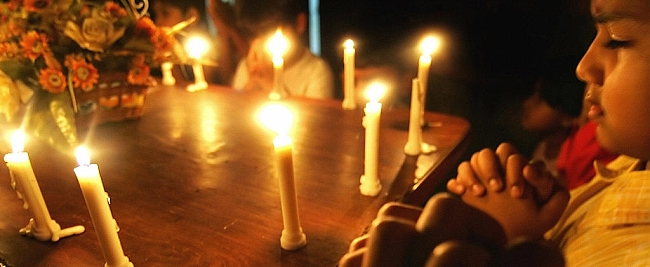
Mar 28, 2016 | Non categorizzato

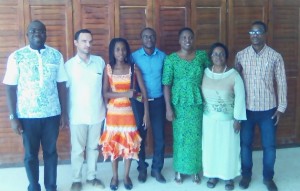
Mar 28, 2016 | Focolare Worldwide
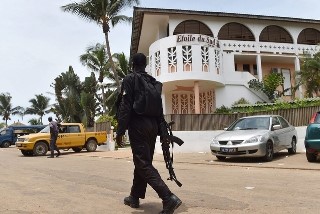 “Last March 13, the Ivory Coast and the entire world learned to their surprise that the seaside city of Grand-Bassam had been hard struck by unknown assailants and that it was difficult to know the number of victims,” write Jeanne Kabanga and Damase Djato from the Focolare in Abidjan. “One can imagine the slaughter with all the people that go there every week to rest on the shore in front of the hotel they call the star of the south. It is a place visited mostly by tourists of every provenance. Grand-Bassam had been the first capital of the Ivory Coasts and is classified as a UNESCO World Heritage Sight.”
“Last March 13, the Ivory Coast and the entire world learned to their surprise that the seaside city of Grand-Bassam had been hard struck by unknown assailants and that it was difficult to know the number of victims,” write Jeanne Kabanga and Damase Djato from the Focolare in Abidjan. “One can imagine the slaughter with all the people that go there every week to rest on the shore in front of the hotel they call the star of the south. It is a place visited mostly by tourists of every provenance. Grand-Bassam had been the first capital of the Ivory Coasts and is classified as a UNESCO World Heritage Sight.”
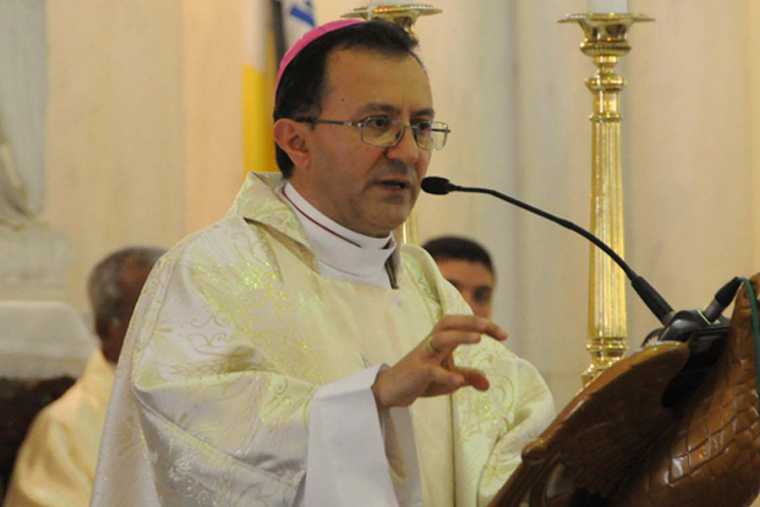
Msgr Joseph Spiteri
 Within such a context, the presentation of the Economy of Communion which, in the Ivory Coast has already made some moves and turned out to be a possible antidote to the poverty and misery: small actions like Firmin’s teaching activity a quarter of Abidjan. And the signature campaign for peace brought out the personal commitment of each person. “It was only when we got home,” Jeanne and Damase continue, “that we learned from the television news about the attack in Grand-Bassam. After a day of listening to talk about peace and experiencing peace, we feel a clear call to be workers of peace, putting into practice what we learned and, above all, living peace within and amongst ourselves in order to give it to the people around us. It seems to us that this is the only way we will be able to give our contribution to defuse terrorism and every sort of hatred.”
Within such a context, the presentation of the Economy of Communion which, in the Ivory Coast has already made some moves and turned out to be a possible antidote to the poverty and misery: small actions like Firmin’s teaching activity a quarter of Abidjan. And the signature campaign for peace brought out the personal commitment of each person. “It was only when we got home,” Jeanne and Damase continue, “that we learned from the television news about the attack in Grand-Bassam. After a day of listening to talk about peace and experiencing peace, we feel a clear call to be workers of peace, putting into practice what we learned and, above all, living peace within and amongst ourselves in order to give it to the people around us. It seems to us that this is the only way we will be able to give our contribution to defuse terrorism and every sort of hatred.”

 One small act of love “I’m a Franciscan. After giving the last hoe I had to a poor person I said to Jesus: “Okay, now you take care of it!” I heard on the radio that a whole party of hoes were arriving. I asked an NGO to make me one of the beneficiaries: I received 200 hoes along with machetes and sacks of seed that I distributed. Many people from the place ask me for help: Members of a Protestant sect from Kimbangisti and even a witch doctor. He invited me to his home and, offering me 5 litres of palm wine, he thanked me for all that I do for his people. All because of one small act of love. . .” G.B. – Angola
One small act of love “I’m a Franciscan. After giving the last hoe I had to a poor person I said to Jesus: “Okay, now you take care of it!” I heard on the radio that a whole party of hoes were arriving. I asked an NGO to make me one of the beneficiaries: I received 200 hoes along with machetes and sacks of seed that I distributed. Many people from the place ask me for help: Members of a Protestant sect from Kimbangisti and even a witch doctor. He invited me to his home and, offering me 5 litres of palm wine, he thanked me for all that I do for his people. All because of one small act of love. . .” G.B. – Angola










